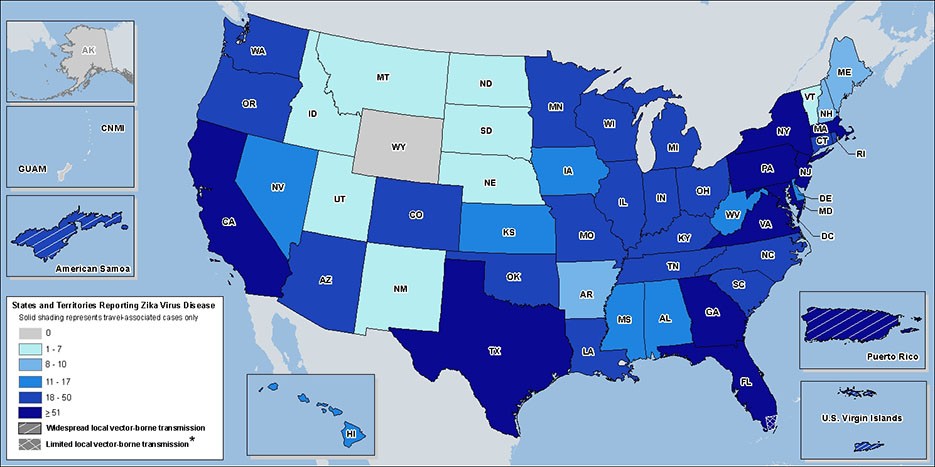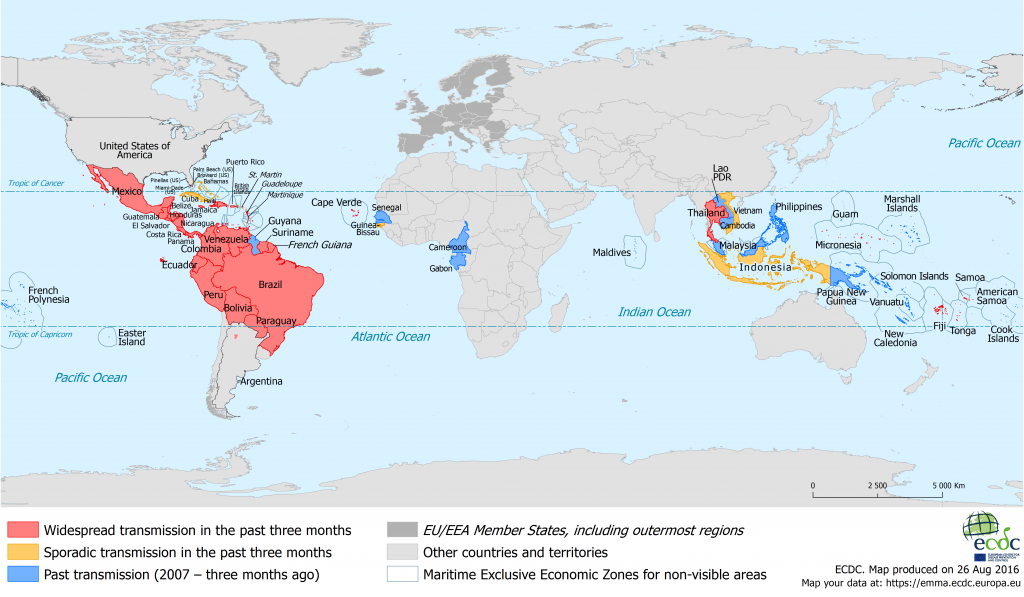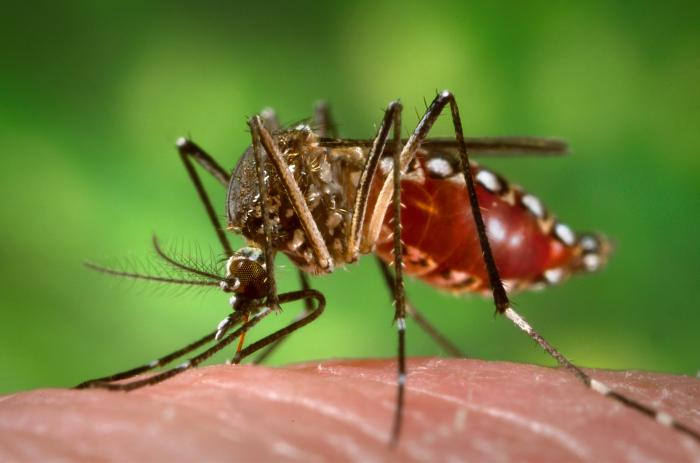One of the biggest health scares of 2016 is the Zika virus. Previously found in other countries, cases are beginning to pop up across the United States.
To keep you and your family safe, here’s five simple things you need to know about the virus:
1. Zika Virus Is Transmitted By Mosquitoes.
The most common way people are infected by the virus is by being bitten by a mosquito that has previously bitten an infected person.
Mosquito bites are annoying, and usually harmless. However, you should never go outdoors without protection with the confidence that you can stand a few nibbles. There are many mosquito-borne illnesses, including malaria, West Nile Virus, and Yellow fever. Why risk it?
Wearing long-sleeved shirts and long pants, even in hot weather, can shield your skin from mosquito bites. You’ll also want to use a repellent. Cedar oil spray can be applied directly to the skin, clothing and pets. Make sure to get all exposed areas of your skin, including your face, neck, and behind your ears. If you’ll be using sunblock, apply it before using the insect spray.
2. Most People With Zika Virus… Don’t Know It.
With the hype surrounding the virus, you might be surprised to learn that many people who contract it do not actually show symptoms. Those that do may experience a fever, rash, red eyes and joint pain for just a few days. There’s currently no vaccination or treatment for Zika – doctors typically tell their patients to manage symptoms with over-the-counter aspirin.
Since so few people affected actually see a doctor, it’s not uncommon for the virus to go unnoticed. That’s not necessarily a good thing. If people do not realize they have it, they will not take steps to prevent others from being affected.
A small percentage aren’t so lucky. Zika virus can result in serious complications, such as acute disseminated encephalomyelitis (ADEM) – which causes inflammation of the brain and spinal cord, and Guillain-Barré syndrome, an autoimmune condition that attacks nerve cells. These patients suffer short and long term symptoms including numbness, loss of vision and cognitive difficulties.
3. Travelling Puts You At Risk.
While hundreds of Zika cases have been reported in the continental United States, most of them involve travel to affected countries. In Florida, however, some patients were infected despite not having traveled – instead having been infected by a local mosquito.

Zika virus cases are found in most of the United States, but a majority of states’ cases are travel-related, with the exception of cases in Florida. Courtesy ofCDC.gov.
Be very careful when travelling to affected countries. The virus is widespread in many countries in North, Central and South America, as well as some parts of Africa and South East Asia.

4. Pregnant Women Should Be Extra Careful.

Women who are pregnant or may become pregnant need to be extremely careful. The Zika virus is known to cause miscarriages, stillbirths, microcephaly and other fatal birth defects if transmitted from mother to baby.
5. Not All Mosquitoes Carry It.
Fortunately, only certain types of mosquitoes can carry the virus, Aedes aegypti. This type of mosquito exists in most of the United States, though the Southern states are considered a “high risk zone,” with higher concentrations of the species.
Even so, other types of mosquitoes can carry other diseases. Your best bet is to avoid getting bitten, regardless of where you live.
Avoid standing pools of water, cover up exposed skin, and use bug spray to treat your family, your pets and your home and garden. Stay safe!

